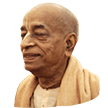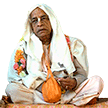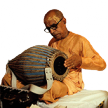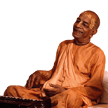Sense Perception - an essential subject: Difference between revisions
Nayanranjani (talk | contribs) (Created page with "Category:Essential Subjects <!----------------------- edit below this line -----------------------> <!------------------------ begin introduction text below ------------...") |
(Vanibot #0041: Moves Choose Another box to the end) |
||
| Line 2: | Line 2: | ||
<!----------------------- edit below this line -----------------------> | <!----------------------- edit below this line -----------------------> | ||
<!------------------------ begin introduction text below ------------------------> | <!------------------------ begin introduction text below ------------------------> | ||
We experience the world around us via our senses and so, this makes our senses a vital part of us. We experience pain and pleasure through our 5 senses of taste, touch, hearing, sight and smell and accordingly react to situations. In the book 'Message of Godhead', it is very rightly stated that the more we become spiritually developed, the less we are affected by the happiness or distress that arise out of sense perception in contact with material association. The false ego created by material contact is then gradually vanquished, and this dismantling of false egoism causes liberation from all material designations and renewed awareness of our relationship with the Absolute Truth. | |||
Srila Prabhupada's books, lectures, conversations and letters offer a comprehensive presentation of this essential subject as seen in the Vaniquotes '''[[Vaniquotes:Category:Sense Perception|Sense Perception]]''' category. An introduction from his books is given below in the following | Srila Prabhupada's books, lectures, conversations and letters offer a comprehensive presentation of this essential subject as seen in the Vaniquotes '''[[Vaniquotes:Category:Sense Perception|Sense Perception]]''' category. An introduction from his books is given below in the following 8 quotes. | ||
<!-------- end introduction text and don't touch next three lines ---------> | <!-------- end introduction text and don't touch next three lines ---------> | ||
== Quotes from Srila Prabhupada's books == | == Quotes from Srila Prabhupada's books == | ||
<!----------------- edit quote boxes below this line -----------------> | <!----------------- edit quote boxes below this line -----------------> | ||
{{VaniQuotebox| | {{VaniQuotebox|A Vaisnava never agrees with the speculative system of the jnanis. Both the jnanis and karmis depend on direct sense perception for their imperfect knowledge|A Vaiṣṇava never agrees with the speculative system of the jñānīs. Both the jñānīs and karmīs depend on direct sense perception for their imperfect knowledge. The karmīs never agree to accept anything not directly perceived, and the jñānīs put forth only hypotheses. However, the Vaiṣṇavas, the unalloyed devotees of the Lord, do not follow the process of acquiring knowledge by direct sense perception or mental speculation. '''(Caitanya-caritāmṛta, Madhya-līlā 7.66)'''}} | ||
{{VaniQuotebox| | {{VaniQuotebox|All forms of happiness or distress, such as winter cold or summer heat, are due to material sense perception only. They come and go according to the laws of nature, and they are therefore to be tolerated without our being disturbed|In Bhagavad-gītā the Personality of Godhead, Śrī Kṛṣṇa, says, "O son of Kuntī! All forms of happiness or distress, such as winter cold or summer heat, are due to material sense perception only. They come and go according to the laws of nature, and they are therefore to be tolerated without our being disturbed. One who is not disturbed by all these comings and goings of temporary happiness and distress—he alone becomes a fit person to attain eternal life." '''(Message of Godhead, Chapter 1)'''}} | ||
{{VaniQuotebox| | {{VaniQuotebox|Karmis never agree to accept anything not directly perceived, and the jnanis put forth only hypotheses. However, the Vaisnavas, the unalloyed devotees of the Lord, do not follow the process of acquiring knowledge by direct sense perception|A Vaiṣṇava never agrees with the speculative system of the jñānīs. Both the jñānīs and karmīs depend on direct sense perception for their imperfect knowledge. The karmīs never agree to accept anything not directly perceived, and the jñānīs put forth only hypotheses. However, the Vaiṣṇavas, the unalloyed devotees of the Lord, do not follow the process of acquiring knowledge by direct sense perception or mental speculation. '''(Caitanya-caritāmṛta, Madhya-līlā 7.66)'''}} | ||
{{VaniQuotebox| | {{VaniQuotebox|Among the living entities who have developed sense perception, those who have developed the sense of taste are better than those who have developed only the sense of touch|Among the living entities who have developed sense perception, those who have developed the sense of taste are better than those who have developed only the sense of touch. Better than them are those who have developed the sense of smell, and better still are those who have developed the sense of hearing. '''(Śrīmad-Bhāgavatam 3.29.29)'''}} | ||
{{VaniQuotebox| | {{VaniQuotebox|By spiritual realization, disintegration of our material affinity naturally begins, and the more we become spiritually developed, the less we are affected by the happiness or distress that arise out of sense perception in contact with material association|We are eternal, spiritual living entities. By such spiritual realization, disintegration of our material affinity naturally begins, and the more we become spiritually developed, the less we are affected by the happiness or distress that arise out of sense perception in contact with material association. '''(Message of Godhead, Chapter 2)'''}} | ||
{{VaniQuotebox| | {{VaniQuotebox|Vedic evidence is called sabda-brahma. There are many things which are beyond the perception of our imperfect senses, yet the authoritative evidence of sound vibration is perfect|Vedic evidence is called śabda-brahma. There are many things which are beyond the perception of our imperfect senses, yet the authoritative evidence of sound vibration is perfect. The Vedas are known as śabda-brahma because evidence taken from the Vedas constitutes the ultimate understanding. '''(Śrīmad-Bhāgavatam 4.24.40)'''}} | ||
{{VaniQuotebox| | {{VaniQuotebox|The desires for all kinds of sense perception and sense organs exist in the Supreme, and thus they take place in the individual persons|The supreme cause of all generation is not impersonal or without desire. The desires for all kinds of sense perception and sense organs exist in the Supreme, and thus they take place in the individual persons. '''(Śrīmad-Bhāgavatam 2.10.17)'''}} | ||
{{VaniQuotebox| | {{VaniQuotebox|Everything that exists in the world is neither an object of happiness nor an object of distress; everything is simply subjective - that is, subject to our sense perceptions as they relate to our processes of thinking, feeling, and willing|Everything that exists in the world is neither an object of happiness nor an object of distress; everything is simply subjective—that is, subject to our sense perceptions as they relate to our processes of thinking, feeling, and willing. '''(Message of Godhead, Chapter 1)'''}} | ||
<!----------------- edit quote boxes above this line -----------------> | <!----------------- edit quote boxes above this line -----------------> | ||
| Line 30: | Line 30: | ||
'''Sense Perception - [[Vaniquotes:Category:Sense Perception|explore more within this category]]'''. | '''Sense Perception - [[Vaniquotes:Category:Sense Perception|explore more within this category]]'''. | ||
{{EsentialSubjectTotal}} | {{EsentialSubjectTotal}} | ||
<div style="float:left;"> | |||
{{EssentialSubjectnav}} | |||
</div> | |||
__NOTOC__ | __NOTOC__ | ||
__NOEDITSECTION__ | __NOEDITSECTION__ | ||
Latest revision as of 17:33, 22 November 2020
We experience the world around us via our senses and so, this makes our senses a vital part of us. We experience pain and pleasure through our 5 senses of taste, touch, hearing, sight and smell and accordingly react to situations. In the book 'Message of Godhead', it is very rightly stated that the more we become spiritually developed, the less we are affected by the happiness or distress that arise out of sense perception in contact with material association. The false ego created by material contact is then gradually vanquished, and this dismantling of false egoism causes liberation from all material designations and renewed awareness of our relationship with the Absolute Truth.
Srila Prabhupada's books, lectures, conversations and letters offer a comprehensive presentation of this essential subject as seen in the Vaniquotes Sense Perception category. An introduction from his books is given below in the following 8 quotes.
Quotes from Srila Prabhupada's books
Sense Perception - explore more within this category.
Vanipedia has now over 903 introductory articles compiled from Srila Prabhupada's books under the series titled Essential Subjects. All these articles can be seen in the Table of Content on the right side of this article and also here in this Umbrella Category. Browse through them to relish the breadth and depth of Srila Prabhupada's teachings - There is a subject for everyone.







